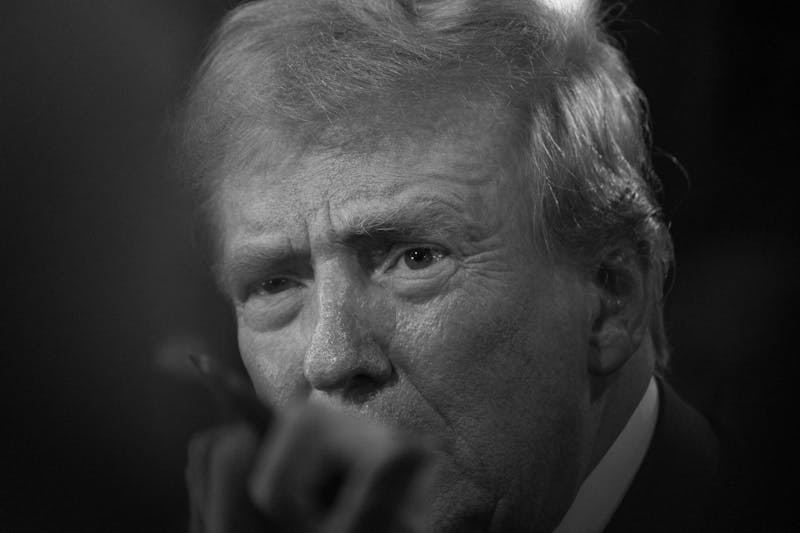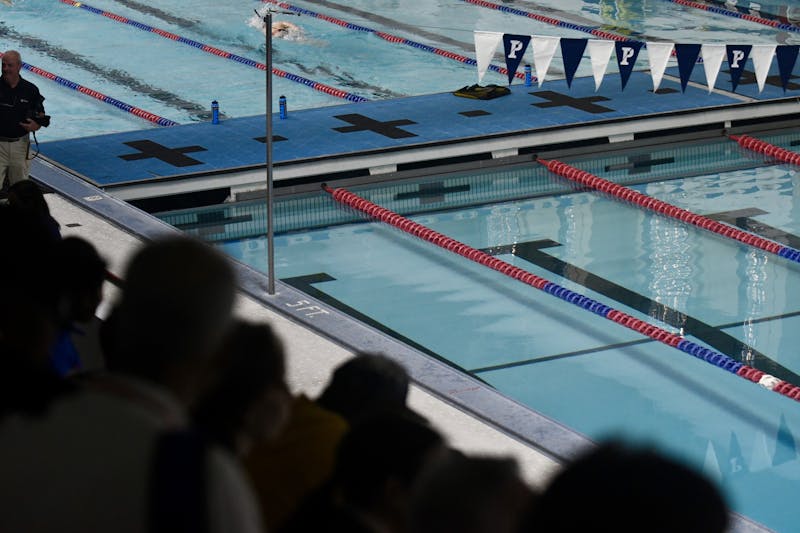Jim Tuppeny, who spent a half century in coaching and led Penn to record heights in the 1970s, died last week at his home in Haverford Twp., Pa., from heart failure due to complications from stomach cancer at 75. He was buried yesterday following a funeral mass on the Villanova campus, where he was active as an associate head coach until last month. "Jim was just a legendary track coach, and a legendary personality," said Rick Owens, who competed for Tuppeny at Penn in the 1960s. "I would put him on par with John Wooden." Wooden led UCLA to seven straight NCAA basketball titles. Tuppeny, without scholarships, led Penn to nine outdoor Heptagonals team titles in 10 seasons. At one stretch, his squads did not lose an outdoor dual or triangular meet for 10 years. And in 1972, they accomplished the remarkable -- winning the prestigious IC4As both indoors and outdoors. "I would reverse that and say Wooden is the Jim Tuppeny of basketball," said Elton Cochran-Fikes, Penn '74 and the first Ivy Leaguer to break four minutes in the mile. "Jim Tuppeny's like the greatest coach in America." "Tupp," as he was known, learned the craft as an assistant to the legendary James (Jumbo) Elliott at Villanova before serving as Penn's head coach from 1966 to 1979. He stayed on as director of the Penn Relays until 1987, and in 1994 he returned to 'Nova as an associate. But more than his accomplishments, Jim Tuppeny left a lasting impression on his athletes, his fellow coaches and his friends. "If you did what he said, and you had an ounce of ability, he got 50 ounces out of you," Owens said. "He was just unbelievable. And every day, it was fun." At Penn, Tupp set winning IC4As and qualifying for the Olympic trials as marks of excellence for his Quakers athletes. Owens takes great pride in being the first to accomplish the feat. At the 1966 IC4As, Owens earned a controversial photo-finish win in what was then the 220-yard dash, the victory not a sure thing until four days after the race. "[Tupp] came in and told me on that Thursday that they had reversed their decision based on a picture," Owens said. "He told me I won and said, 'You know, four days, 21 seconds is not a great time for 200 meters, but you won. We'll take it.'" Tupp hung the photo in his office, and then in his home after he left Penn. Three decades after the race, when Tupp was diagnosed with stomach cancer, Owens went to visit him at Villanova. The two went out onto the track and retraced the steps of the 220. "He just got me crying -- he just had that impact on you," Owens said. "He made me walk with him, walk the 220. He kept saying to me, 'You're in last place here! You're in last place here!' It took me a long time to get into first place. It was great. "There has not been a better coach in this country in track and field. And a better person." He was an authority on the track, one of the last of an old breed of coaches knowledgeable about all events and not a mere specialist. He could be tough and he could be abrasive, but no matter what "even the people who are not crazy about him respected him," said Irv Mondschein, his longtime assistant and coaching successor at Penn. He modeled his coaching style after Jumbo, with whom he worked alongside from 1953 to 1966. The two steered 'Nova to an amazing 15 IC4A team titles in cross country, indoor and outdoor track and an NCAA outdoor team title in '57. At Penn, Tupp's coaching style was like the persistent polishing of a diamond from black rock, according to Mondschein. "He was a great recruiter. He knew his technique pretty well. He had a good feeling for when kids were tired, when to back off," said Mondschein, who retired in '87. Owens was one of those diamonds. Also a football player, he was drafted by the Oakland Raiders in 1968, which he attributes to his speed -- and that, of course, is an achievement he calls "strictly a trbute to Tupp." Jim Tuppeny was as disciplined and meticulous as they come. When he handed over the reins to Dave Johnson in 1987, he literally left a book of notes astounding in detail. "If you turned the page you knew what you'd have to do for each new day," Johnson said. "He ran everything in a very, very methodical fashion." But being meticulous and being dry are two separate things, and Tupp was most certainly not the latter. He loved a good joke. And he was a man for nicknames, so everybody who ran for him was Rock Top Jasper or Champ, and women were Mabels or Myrtles. Guys would say, "Oh, he calls us that because he can't remember our names," but really they were endearing nicknames. Tupp would push you beyond your limits on the track, but "he was an extremely caring individual," according to Cochran-Fikes. "He cared about his athletes, fought for their rights as athletes." He served in World War II, earned a bachelor's degree from La Salle and a master's from Villanova, and then he took more graduate classes at Penn. He married the former Kathleen O'Doherty (who passed away in 1990) and raised five daughters. He served as president of the NCAA Track and Field Coaches Association and as Vice President of what is now USA Track and Field. He was the first executive director of the Philadelphia Sports Congress. And as Penn Relays director he took a "hallowed old institution and pushed it into a groundswell," according to Mondschein. "It became ... one of the premier athletic events of our time." None of this should come as a surprise, though, because Jim Tuppeny lived his life the way he expected his athletes to perform on the track. Current Penn coach Charlie Powell has known Tupp since his days bringing Western Kentucky's stellar distance teams to the Penn Relays in the late '70s. And he'll never forget Tupp's speech about life: "If you ever have a chance to dance, don't sit this one out. It's your life, don't sit out your life... At least have the guts to dance the dance." Which is why at his wake Monday night, people sat around telling their favorite Tupp stories, laughing and joking and celebrating his life, because his death is not a tragedy. A tragedy would have been not knowing Tupp. Owens: "Having met him, having been coached by him, and to be able to consider myself a friend of his -- it's one of the great things in my life." He kept close ties with his former athletes, who turned out in droves for his wake and funeral. One of those young men, Steve Galetta, grew up to be a Penn neurologist. In recent years he paid Tupp frequent visits, checking up on his condition and the quality of his care. When he was told by his doctors last week that he wasn't going to recover from the latest complications, he said to Galetta, "Well, I guess I'll have lunch with Jumbo on Thursday." A man for details till the end, Tupp died last Wednesday night.
The Daily Pennsylvanian is an independent, student-run newspaper. Please consider making a donation to support the coverage that shapes the University. Your generosity ensures a future of strong journalism at Penn.
DonatePlease note All comments are eligible for publication in The Daily Pennsylvanian.







